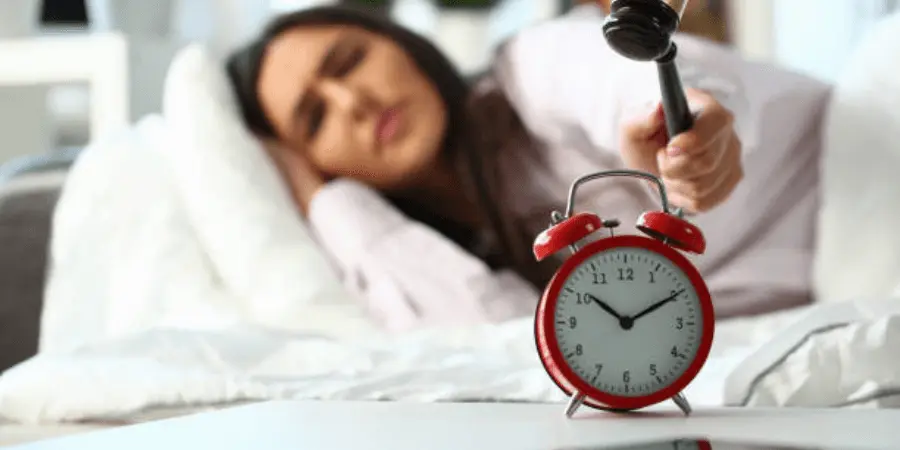- 10 Tips to Biohack Your Sleep
- 1. How to Biohack Your Sleep by Measuring and Monitoring It
- 2. Biohack Your Sleep with the Right Temperature in Your Bedroom
- 3. Biohack Your Sleep by Creating a Dark and Quiet Sleeping Environment
- 4. How to Biohack Your Sleep with the Best Bed and Pillow for You
- 5. Biohack Your Sleep by Following a Consistent Sleep Schedule
- 6. How to Biohack Your Sleep by Avoiding Naps During the Day
- 7. Biohack Your Sleep by Eating Healthy and Light Meals Before Bed
- 8. How to Biohack Your Sleep with Regular and Wise Exercise
- 9. Biohack Your Sleep by Managing Your Stress and Emotions
- 10. Avoid Naps During the Day
- Conclusion
- FAQ
Sleep is essential for your health, happiness, and productivity. It helps you repair your body, consolidate your memory, regulate your hormones, and boost your immune system.
However, many people struggle with getting enough sleep or sleeping well. According to the Centers for Disease Control and Prevention (CDC), about 35% of American adults do not get the recommended seven hours of sleep per night.
If you are one of them, you may be wondering how to biohack sleep and improve your sleep quality and quantity. Biohacking sleep is the process of using various methods and techniques to optimize your sleep and enhance your well-being.
Biohacking your sleep can help you fall asleep faster, sleep deeper, wake up refreshed, and perform better during the day.
They cover different aspects of sleep, such as environment, behavior, nutrition, and technology. You can try them out and see what works best for you and your lifestyle. Let’s get started to biohack your sleep!
10 Tips to Biohack Your Sleep
We will share with you 10 tips to biohack your sleep to sleep better and feel amazing. These tips are based on scientific research, personal experience, and expert advice.
1. How to Biohack Your Sleep by Measuring and Monitoring It
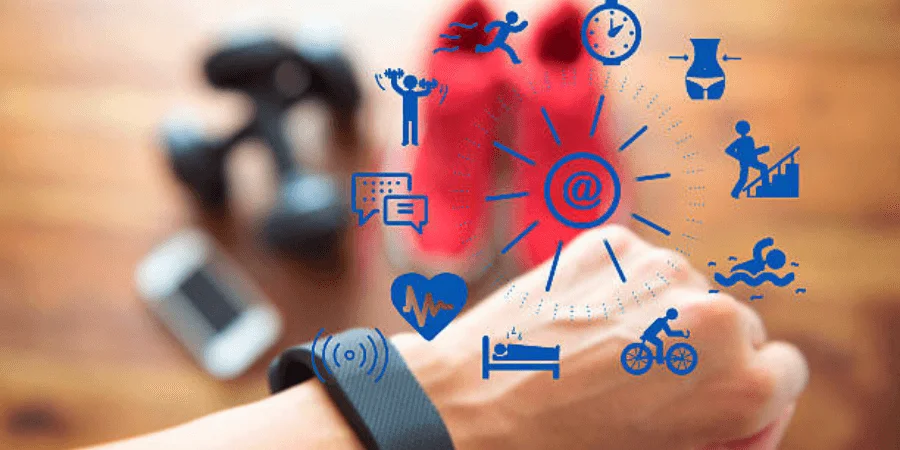
The first step to biohack your sleep is to measure and monitor your sleep. This will help you understand your sleep patterns, identify any problems, and track your progress. There are different ways to measure and monitor your sleep, such as:
- Sleep trackers: These are devices or apps that you wear or use to track your sleep duration, quality, and stages. They can measure various parameters, such as your heart rate, movement, breathing, snoring, and temperature.
- Some examples of sleep trackers are the Oura Ring, the Fitbit, the Apple Watch, and the Sleep Cycle app. They can provide you with useful data and feedback on your sleep and give you personalized recommendations to improve it.
- Sleep diaries: These are journals or logs where you record your sleep habits, such as your bedtime, wake-up time, sleep quality, and any factors that may affect your sleep, such as caffeine, alcohol, stress, or exercise.
- You can use a paper notebook, a spreadsheet, or an online tool, such as the Sleep Diary from the National Sleep Foundation. Keeping a sleep diary can help you become more aware of your sleep patterns and habits and identify any areas that need improvement.
- Sleep studies: These are tests that are performed in a sleep laboratory or at home to diagnose any sleep disorders, such as sleep apnea, insomnia, or restless legs syndrome.
- They involve attaching sensors to your body to measure your brain activity, eye movements, muscle activity, breathing, oxygen levels, and heart rate.
- They can provide you with a detailed and accurate analysis of your sleep and help you find the best treatment for your condition.
By measuring and monitoring your sleep, you can biohack your sleep and optimize it for your health and performance.
2. Biohack Your Sleep with the Right Temperature in Your Bedroom
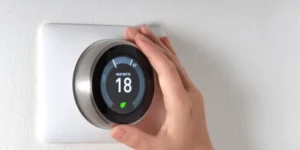
The temperature of your bedroom can have a significant impact on your sleep quality and quantity. If your bedroom is too hot or too cold, it can disrupt your sleep and make you feel uncomfortable.
According to the National Sleep Foundation, the ideal temperature for your bedroom is between 60 and 67 degrees Fahrenheit (15 and 19 degrees Celsius).
This is because your body temperature naturally drops at night to initiate sleep and maintain a deep sleep state. If your bedroom is too warm, it can prevent your body from cooling down and interfere with your sleep cycles. If your bedroom is too cold, it can cause you to shiver and wake up frequently.
To keep your bedroom at the right temperature, you can use some of the following tips:
- Use a fan, air conditioner, or heater: Depending on the season and your preference, you can use a fan, air conditioner, or heater to adjust the temperature of your bedroom. You can also use a smart thermostat, such as the Nest, to automatically regulate the temperature according to your schedule and preference.
- Use the right bedding: Choose bedding materials that are breathable, lightweight, and comfortable for you. You can also use different layers of bedding, such as blankets, sheets, and comforters, to add or remove warmth as needed. You can also use a heated blanket or a cooling pad to provide extra heat or coolness to your bed.
- Wear the right clothing: Wear clothing that is loose, comfortable, and appropriate for the season. Avoid wearing clothing that is too tight, heavy, or synthetic, as they can trap heat and moisture and cause you to sweat or overheat. You can also wear socks, gloves, or a hat to keep your extremities warm or cool.
By keeping your bedroom at the right temperature, you can biohack your sleep and create a comfortable and conducive environment for sleeping.
3. Biohack Your Sleep by Creating a Dark and Quiet Sleeping Environment

Another important factor that affects your sleep quality and quantity is the amount and type of light and noise in your bedroom. Light and noise can stimulate your brain and body and keep you awake or disrupt your sleep cycles.
According to the National Sleep Foundation, exposure to light at night can suppress the production of melatonin, the hormone that regulates your sleep-wake cycle. Noise can also increase your stress levels, blood pressure, and heart rate and interfere with your sleep quality and quantity.
To make your bedroom dark and quiet, you can use some of the following tips:
- Use curtains, blinds, or shades: Use curtains, blinds, or shades to block out any external light sources, such as streetlights, car headlights, or the sun. You can also use blackout curtains, which are specially designed to block out 100% of the light. You can also use a smart curtain, such as the SwitchBot, to automatically open and close your curtains according to your schedule and preference.
- Use a sleep mask: Use a sleep mask to cover your eyes and block out any internal light sources, such as your alarm clock, phone, or laptop. You can also use a smart sleep mask, such as the Dreamlight, to provide you with soothing sounds, lights, and aromas to help you fall asleep and wake up.
- Use earplugs or headphones: Use earplugs or headphones to block out any external noise sources, such as traffic, neighbors, or pets. You can also use noise-canceling headphones, which are specially designed to reduce or eliminate ambient noise. You can also use smart headphones, such as the Kokoon, to provide you with relaxing sounds, music, or meditation to help you fall asleep and wake up.
- Use a white noise machine or app: Use a white noise machine or app to create a consistent and soothing sound that can mask any other noise sources. White noise is a type of sound that contains all the frequencies of the audible spectrum and can help you relax and sleep better. You can also use other types of sounds, such as pink noise, brown noise, or nature sounds, depending on your preference. You can also use a smart white noise machine, such as the Hatch, to provide you with customizable sounds, lights, and alarms to help you fall asleep and wake up.
By making your bedroom dark and quiet, you can biohack your sleep and reduce any distractions and disturbances that can affect your sleep.
4. How to Biohack Your Sleep with the Best Bed and Pillow for You
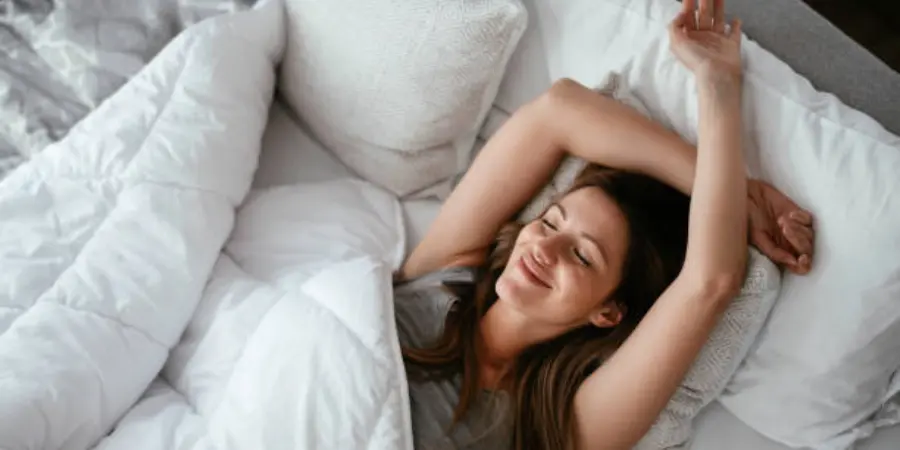
Your bed and pillow are also essential for your sleep quality and quantity. They can affect your comfort, posture, alignment, and pressure points. If your bed and pillow are too hard, soft, or uneven, they can cause you to toss and turn, experience pain or stiffness, or snore or breathe poorly.
According to the National Sleep Foundation, the ideal firmness of your bed and pillow depends on your personal preference, sleeping position, and body type.
To optimize your bed and pillow, you can use some of the following tips:
- Choose the right mattress: Choose a mattress that is comfortable, supportive, and durable for you. You can choose from different types of mattresses, such as memory foam, latex, innerspring, or hybrid, depending on your preference and budget. You can also use a smart mattress, such as the Eight Sleep, to provide you with adjustable temperature, firmness, and feedback on your sleep.
- Choose the right pillow: Choose a pillow that is comfortable, supportive, and breathable for you. You can choose from different types of pillows, such as down, feather, foam, or latex, depending on your preference and budget. You can also use a smart pillow, such as the Zeeq, to provide you with music, snore detection, and vibration to help you fall asleep and wake up.
- Choose the right bedding: Choose bedding materials that are soft, smooth, and hypoallergenic for you. You can choose from different types of bedding, such as cotton, silk, bamboo, or linen, depending on your preference and budget. You can also use smart bedding, such as the Smartduvet, to provide you with adjustable temperature, pressure, and automation to help you fall asleep and wake up.
By optimizing your bed and pillow, you can biohack your sleep and improve your comfort and posture while sleeping.
5. Biohack Your Sleep by Following a Consistent Sleep Schedule
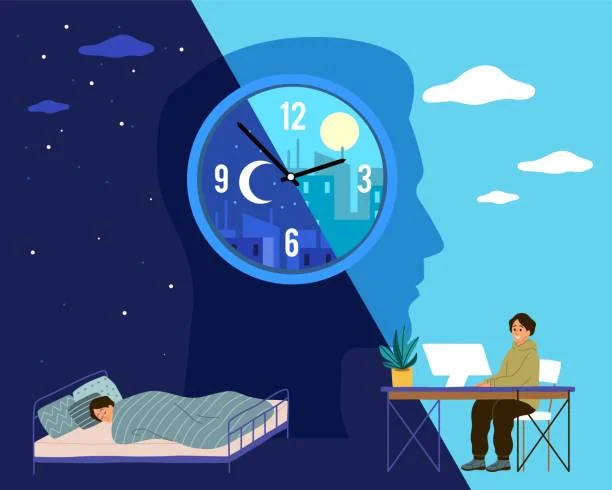
One of the most effective ways to biohack your sleep is to follow a consistent sleep schedule
A consistent sleep schedule is a sleep pattern that you follow every day, regardless of the day of the week, holidays, or special occasions.
It means going to bed and waking up at the same time every day, or as close as possible. Following a consistent sleep schedule can help you biohack your sleep and improve your sleep quality and quantity.
According to the National Sleep Foundation, following a consistent sleep schedule can have several benefits, such as:
- Regulating your circadian rhythm: Your circadian rhythm is your internal clock that tells your body when to sleep and when to wake up. It is influenced by external cues, such as light and temperature, and internal cues, such as hormones and genes. By following a consistent sleep schedule, you can align your circadian rhythm with the natural cycle of day and night and help your body prepare for sleep and wake up more easily.
- Enhancing your sleep efficiency: Your sleep efficiency is the percentage of time that you spend asleep while in bed. It is a measure of how well you sleep and how much you benefit from your sleep. By following a consistent sleep schedule, you can increase your sleep efficiency and reduce the amount of time that you spend awake or restless in bed. This can help you get more restful and restorative sleep and feel more refreshed and energized during the day.
- Reducing your sleep debt: Your sleep debt is the difference between the amount of sleep that you need and the amount of sleep that you get. It is accumulated over time and can have negative effects on your health, mood, and performance. By following a consistent sleep schedule, you can reduce your sleep debt and avoid the consequences of chronic sleep deprivation, such as impaired memory, concentration, judgment, immunity, and metabolism.
To follow a consistent sleep schedule, you can use some of the following tips:
- Set a regular bedtime and wake-up time: Choose a bedtime and wake-up time that suits your lifestyle, preferences, and needs. Ideally, you should aim for at least seven hours of sleep per night, but you may need more or less depending on your individual factors. Try to stick to your bedtime and wake-up time as much as possible, even on weekends, holidays, or special occasions. If you need to adjust your sleep schedule, do it gradually and by no more than an hour at a time.
- Create a relaxing bedtime routine: A bedtime routine is a series of activities that you do before going to bed to help you unwind and relax. It can include things like reading, listening to music, meditating, stretching, or taking a bath. A bedtime routine can help you biohack your sleep and signal your body and mind that it is time to sleep and ease the transition from wakefulness to sleepiness. Try to do your bedtime routine at the same time every night and avoid any stimulating or stressful activities, such as working, watching TV, or checking your phone.
- Use an alarm clock or a smart device: An alarm clock or a smart device can help you follow a consistent sleep schedule by reminding you when to go to bed and when to wake up. You can use a traditional alarm clock, a smartphone, a smartwatch, or a smart speaker, depending on your preference and budget. You can also use a smart alarm, such as the Philips Wake-up Light, to provide you with natural and gradual light and sound to help you wake up more gently and naturally.
By following a consistent sleep schedule, you can biohack your sleep and establish a healthy and regular sleep pattern that can benefit your well-being and performance.
6. How to Biohack Your Sleep by Avoiding Naps During the Day

Caffeine, alcohol, and nicotine are substances that can affect your sleep quality and quantity. They can stimulate your nervous system, alter your brain chemistry, and disrupt your sleep cycles. According to the National Sleep Foundation, you should avoid consuming caffeine, alcohol, and nicotine for at least four to six hours before bed.
- Caffeine: Caffeine is a stimulant that can keep you alert and energized. It can also delay the onset of sleep, reduce the amount of deep sleep, and increase the number of awakenings during the night. Caffeine can be found in coffee, tea, energy drinks, chocolate, and some medications. If you are sensitive to caffeine, you may want to limit your intake or avoid it altogether in the afternoon and evening.
- Alcohol: Alcohol is a depressant that can make you feel relaxed and sleepy. It can also interfere with your sleep quality and quantity. Alcohol can reduce the amount of REM sleep, which is the stage of sleep where you dream and consolidate your memory. It can also cause you to snore, breathe poorly, and wake up frequently during the night. Alcohol can also affect your hydration, blood sugar, and body temperature, which can further disrupt your sleep. If you drink alcohol, you should do it in moderation and avoid it close to your bedtime.
- Nicotine: Nicotine is a stimulant that can keep you awake and alert. It can also affect your sleep quality and quantity. Nicotine can reduce the amount of deep sleep and REM sleep, which are the stages of sleep where you repair your body and mind. It can also cause you to have difficulty falling asleep, wake up more often during the night, and experience withdrawal symptoms, such as headaches, irritability, and cravings. Nicotine can be found in cigarettes, e-cigarettes, chewing tobacco, and patches. If you smoke or use nicotine products, you should quit or reduce your use, especially in the evening and at night.
By avoiding caffeine, alcohol, and nicotine before bed, you can biohack your sleep and prevent any negative effects on your sleep.
7. Biohack Your Sleep by Eating Healthy and Light Meals Before Bed

What you eat and when you eat can also affect your sleep quality and quantity. Eating healthy and light meals before bed can help you biohack your sleep and improve your digestion, metabolism, and hormone balance.
According to the National Sleep Foundation, you should eat your last meal at least three hours before bed and avoid any foods that can cause indigestion, heartburn, or allergies.
- Eat healthy foods: Eat foods that are nutritious, balanced, and varied. Include foods that are rich in protein, fiber, healthy fats, vitamins, minerals, and antioxidants. These foods can help you regulate your blood sugar, appetite, and mood and provide you with the energy and nutrients that you need for your health and performance. Some examples of healthy foods are fruits, vegetables, whole grains, lean meats, eggs, nuts, seeds, and dairy products.
- Eat light foods: Eat foods that are easy to digest, low in calories, and high in water content. Avoid foods that are heavy, greasy, spicy, or acidic. These foods can cause you to feel bloated, uncomfortable, or nauseous and interfere with your sleep. They can also trigger or worsen conditions such as gastroesophageal reflux disease (GERD), irritable bowel syndrome (IBS), or ulcers. Some examples of light foods are soups, salads, yogurt, smoothies, and herbal teas.
- Eat sleep-promoting foods: Eat foods that contain substances that can help you fall asleep and sleep better. These substances include tryptophan, melatonin, magnesium, calcium, and potassium. They can help you produce and regulate the hormones and neurotransmitters that are involved in your sleep-wake cycle, such as serotonin, melatonin, and GABA. Some examples of sleep-promoting foods are turkey, milk, cheese, bananas, cherries, almonds, and spinach.
By eating healthy and light meals before bed, you can biohack your sleep and support your digestion, metabolism, and hormone balance while sleeping.
8. How to Biohack Your Sleep with Regular and Wise Exercise

Exercise is another factor that can affect your sleep quality and quantity.
Exercise can help you biohack your sleep and improve your physical, mental, and emotional well-being. According to the National Sleep Foundation, exercise can have several benefits for your sleep, such as:
- Improving your cardiovascular health: Exercise can strengthen your heart, lower your blood pressure, and improve your blood circulation. This can help you prevent or manage conditions such as hypertension, diabetes, and cardiovascular disease, which can affect your sleep quality and quantity.
- Reducing your stress levels: Exercise can release endorphins, which are natural chemicals that can make you feel happy, relaxed, and calm. This can help you cope with stress, anxiety, and depression, which can affect your sleep quality and quantity.
- Regulating your body temperature: Exercise can raise your body temperature and make you sweat. This can help you cool down and relax your muscles and nerves. This can also help you trigger the drop in body temperature that is associated with sleep onset and maintenance.
- Balancing your hormones: Exercise can influence the production and regulation of hormones that are involved in your sleep-wake cycle, such as cortisol, melatonin, and growth hormone. This can help you synchronize your circadian rhythm with the natural cycle of day and night and help you sleep better and deeper.
To exercise regularly and wisely, you can use some of the following tips:
- Choose the right type of exercise: Choose a type of exercise that suits your preferences, goals, and abilities. You can choose from different types of exercise, such as aerobic, anaerobic, strength, flexibility, or balance. You can also choose from different modes of exercise, such as walking, running, cycling, swimming, or dancing. You can also use a smart device, such as the Peloton, to provide you with interactive and personalized workouts and feedback.
- Choose the right time of exercise: Choose a time of exercise that suits your schedule, lifestyle, and sleep pattern. Ideally, you should exercise in the morning or afternoon, as this can help you boost your energy, mood, and metabolism and expose you to natural light, which can help you regulate your circadian rhythm. However, if you prefer to exercise in the evening or night, you should do it at least three hours before bed and avoid any high-intensity or stimulating exercises, as this can help you avoid any negative effects on your sleep, such as increased alertness, body temperature, or heart rate.
- Choose the right duration and intensity of exercise: Choose a duration and intensity of exercise that suits your fitness level, health condition, and sleep needs. Ideally, you should aim for at least 150 minutes of moderate-intensity exercise or 75 minutes of vigorous-intensity exercise per week, according to the Physical Activity Guidelines for Americans. However, you may need more or less depending on your individual factors. You should also avoid over-exercising or under-exercising, as this can affect your sleep quality and quantity.
By exercising regularly and wisely, you can biohack your sleep and enhance your well-being and performance while sleeping.
9. Biohack Your Sleep by Managing Your Stress and Emotions
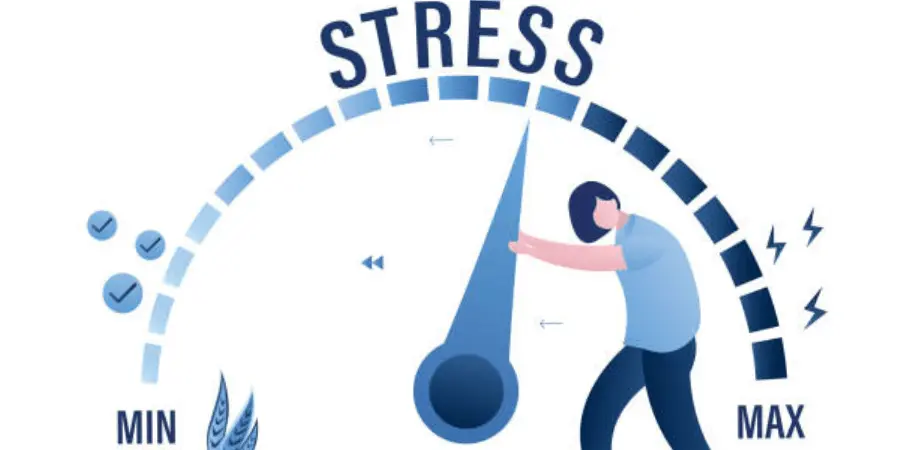
Stress and emotions are also factors that can affect your sleep quality and quantity. Stress and emotions can affect your brain and body and keep you awake or disrupt your sleep. According to the National Sleep Foundation, stress and emotions can have several effects on your sleep, such as:
- Increasing your cortisol levels: Cortisol is a hormone that is released in response to stress. It can help you cope with stress, but it can also keep you alert and energized. If your cortisol levels are too high or too low, it can affect your sleep quality and quantity. High cortisol levels can prevent you from falling asleep, reduce the amount of deep sleep, and increase the number of awakenings during the night. Low cortisol levels can cause you to feel tired, depressed, or unmotivated and interfere with your sleep quality and quantity.
- Decreasing your serotonin levels: Serotonin is a neurotransmitter that is involved in your mood, appetite, and sleep. It can help you feel happy, calm, and satisfied. If your serotonin levels are too low, it can affect your sleep quality and quantity. Low serotonin levels can cause you to feel sad, anxious, or irritable and interfere with your sleep onset and maintenance. It can also affect the production of melatonin, the hormone that regulates your sleep-wake cycle.
- Affecting your dreams and nightmares: Dreams and nightmares are vivid and emotional experiences that occur during your REM sleep. They can reflect your thoughts, feelings, and memories and help you process and cope with them. However, if you are stressed or emotional, you may have more intense, frequent, or disturbing dreams or nightmares that can affect your sleep quality and quantity. Dreams and nightmares can cause you to wake up more often during the night, feel more tired or stressed during the day, or develop a fear of sleeping.
To manage your stress and emotions, you can use some of the following tips:
- Practice relaxation techniques: Relaxation techniques are methods that can help you reduce your stress levels, calm your mind, and relax your body. They can include things like breathing exercises, meditation, yoga, tai chi, or progressive muscle relaxation. Relaxation techniques can help you biohack your sleep and prepare you for sleep and improve your sleep quality and quantity. You can practice relaxation techniques at any time of the day, but especially before bed or when you feel stressed or emotional.
- Seek professional help: Professional help is assistance that you can get from a qualified and licensed mental health provider, such as
- a psychologist, a psychiatrist, a counselor, or a therapist. Professional help can help you diagnose and treat any mental health conditions, such as depression, anxiety, PTSD, or insomnia, that may affect your sleep quality and quantity. Professional help can also provide you with psychotherapy, medication, or other interventions that can help you cope with your stress and emotions and improve your well-being and performance.
- Seek social support: Social support is assistance that you can get from your family, friends, or other people who care about you. Social support can help you reduce your stress levels, improve your mood, and enhance your resilience and self-esteem. Social support can also provide you with emotional, practical, or informational support that can help you deal with your stress and emotions and improve your well-being and performance. You can seek social support by talking to someone you trust, joining a support group, or participating in a community activity.
- By managing your stress and emotions, you can biohack your sleep and prevent any negative effects on your sleep.
10. Avoid Naps During the Day
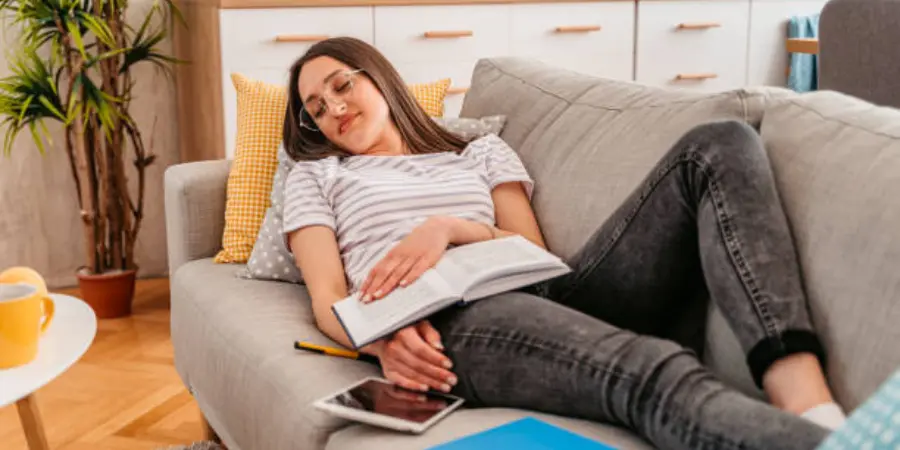
Naps are short periods of sleep that you take during the day. Naps can help you biohack your sleep and improve your alertness, mood, and performance. However, naps can also affect your sleep quality and quantity. According to the National Sleep Foundation, naps can have several effects on your sleep, such as:
- Reducing your sleep pressure: Your sleep pressure is the amount of sleepiness that you feel and the need to sleep that you have. It is influenced by the amount of time that you spend awake and the quality of your sleep. By taking a nap during the day, you can reduce your sleep pressure and make it harder to fall asleep or stay asleep at night.
- Disrupting your circadian rhythm: Your circadian rhythm is your internal clock that tells your body when to sleep and when to wake up. It is influenced by external cues, such as light and temperature, and internal cues, such as hormones and genes. By taking a nap during the day, you can disrupt your circadian rhythm and confuse your body and mind about the time of day and night. This can affect your sleep onset and maintenance and cause you to have jet lag-like symptoms, such as fatigue, irritability, or difficulty concentrating.
- Interfering with your sleep cycles: Your sleep cycles are the stages of sleep that you go through during the night. They include light sleep, deep sleep, and REM sleep. Each sleep cycle lasts about 90 minutes and repeats four to six times per night. By taking a nap during the day, you can interfere with your sleep cycles and affect the quality and quantity of your sleep. If you nap too long or too late, you can reduce the amount of deep sleep and REM sleep that you get at night, which are the stages of sleep where you repair your body and mind. If you nap too short or too early, you can experience sleep inertia, which is the feeling of grogginess and disorientation that you have after waking up from a nap.
Biohack Your Sleep by Avoiding Naps During the Day, use some of the following tips:
- Get enough sleep at night: The best way to avoid naps during the day is to get enough sleep at night. By following the tips that we have shared in this article, you can biohack your sleep and improve your sleep quality and quantity. By getting enough sleep at night, you can reduce your need to nap during the day and feel more alert, energetic, and productive throughout the day.
- Keep a regular sleep schedule: Another way to avoid naps during the day is to keep a regular sleep schedule. By going to bed and waking up at the same time every day, or as close as possible, you can establish a healthy and regular sleep pattern that can benefit your well-being and performance. By keeping a regular sleep schedule, you can avoid any fluctuations in your sleep pressure and circadian rhythm that can affect your sleep quality and quantity and make you feel sleepy during the day.
- Use natural stimulants: Another way to avoid naps during the day is to use natural stimulants. Natural stimulants are substances or activities that can help you boost your energy, mood, and performance. They can include things like sunlight, water, exercise, music, or laughter. By using natural stimulants, you can biohack your sleep and avoid any artificial or harmful stimulants, such as caffeine, alcohol, or nicotine, that can affect your sleep quality and quantity and make you feel more tired during the day.
By avoiding naps during the day, you can biohack your sleep and prevent any negative effects on your sleep.
Conclusion
Sleep is a vital and complex process that affects your health, happiness, and productivity. By biohacking your sleep, you can optimize your sleep and enhance your well-being and performance. In this article, we have shared with you 10 tips to biohack your sleep and sleep better and feel amazing. These tips are based on scientific research, personal experience, and expert advice.
They cover different aspects of sleep, such as environment, behavior, nutrition, and technology. You can try them out and see what works best for you and your lifestyle.
We hope that this article has helped you learn more about how to biohack your sleep and inspired you to take action and improve your sleep. Remember, sleep is not a luxury, but a necessity. Sleep well and live well!
FAQ
Here are some frequently asked questions and answers about how to biohack your sleep:
Q: What does it mean to biohack your sleep?
A: To biohack your sleep means to use various methods and techniques to optimize your sleep and enhance your well-being and performance. Biohacking your sleep can involve different aspects of sleep, such as environment, behavior, nutrition, and technology. Biohacking your sleep can help you fall asleep faster, sleep deeper, wake up refreshed, and perform better during the day.
Q: Why should I biohack my sleep?
A: You should biohack your sleep because sleep is a vital and complex process that affects your health, happiness, and productivity. Sleep helps you repair your body, consolidate your memory, regulate your hormones, and boost your immune system.
Sleep also helps you improve your mood, creativity, learning, and decision-making. Sleep can also help you prevent or manage various conditions, such as obesity, diabetes, cardiovascular disease, Alzheimer’s disease, or depression. Sleep can also help you live longer and better.
Q: How can I biohack my sleep?
A: You can biohack your sleep by following the tips that we have shared in this article, such as measuring and monitoring your sleep, keeping your bedroom at the right temperature, making your bedroom dark and quiet, optimizing your bed and pillow, following a consistent sleep schedule, avoiding caffeine, alcohol, and nicotine before bed, eating healthy and light meals before bed, exercising regularly and wisely, managing your stress and emotions, and avoiding naps during the day.
You can also use various tools and devices, such as sleep trackers, smart mattresses, smart pillows, smart curtains, smart alarms, smart white noise machines, or smart sleep masks, to help you biohack your sleep.
Q: How much does it cost to biohack your sleep?
A: The cost of biohacking your sleep depends on the methods and techniques that you use and the tools and devices that you buy. Some methods and techniques are free or low-cost, such as following a consistent sleep schedule, avoiding caffeine, alcohol, and nicotine before bed, or practicing relaxation techniques.
Some tools and devices are more expensive, such as smart mattresses, smart pillows, or smart sleep masks. However, you can also find some affordable or alternative options, such as using a fan, a sleep mask, or a white noise app. You can also use a budget planner, such as the Mint, to help you manage your finances and save money for your sleep biohacking.
Q: How long does it take to biohack your sleep?
A: The time that it takes to biohack your sleep depends on the methods and techniques that you use and the results that you expect. Some methods and techniques can have immediate or short-term effects, such as using a smart alarm, a smart white noise machine, or a smart sleep mask.
Some methods and techniques can have long-term or cumulative effects, such as measuring and monitoring your sleep, keeping your bedroom at the right temperature, or managing your stress and emotions.
However, you should also be patient and consistent with your sleep biohacking, as it may take some time and trial and error to find out what works best for you and your lifestyle.

